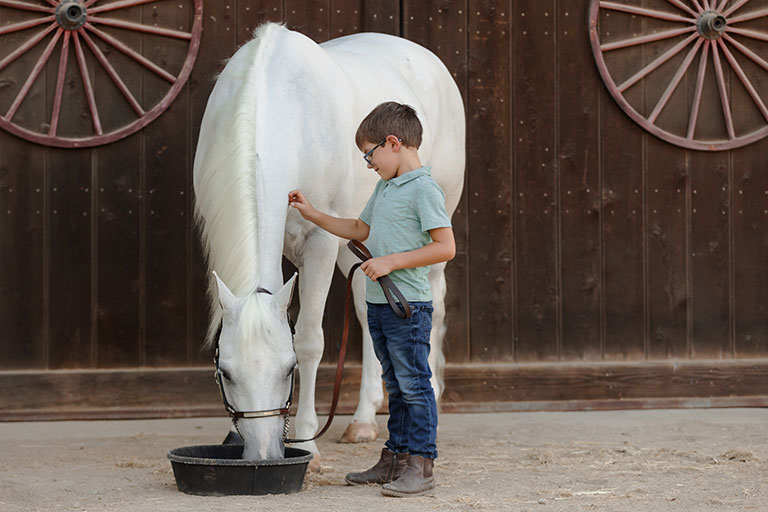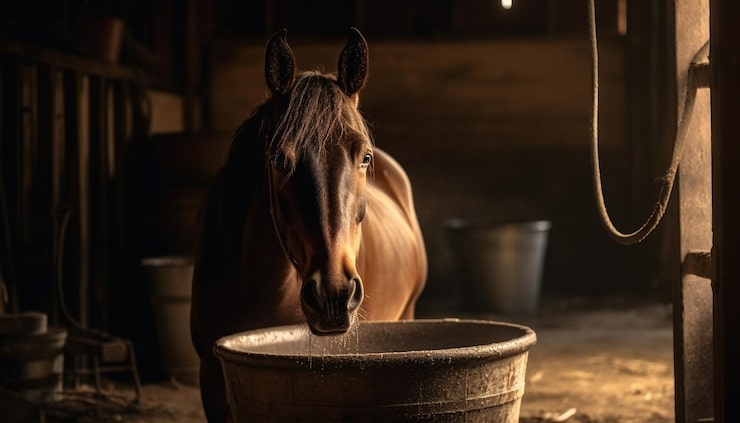As horses age, their health needs evolve, requiring special attention to ensure they live comfortably and happily. Among the many aspects of equine care, dental float for senior horses plays a crucial role. Understanding the importance of dental care can significantly enhance the quality of life for your aging equine companion.

Why Is Dental Health Important for Senior Horses?
The importance of maintaining good dental health in senior horses cannot be overstated. As horses age, their teeth wear down and may develop uneven surfaces, known as hooks and points. These irregularities can cause discomfort, affecting their ability to chew and digest food properly.
Understanding Dental Issues in Aging Horses
Senior horses are prone to several dental issues, such as periodontal disease, tooth loss, and malocclusions. These problems can lead to weight loss, colic, and behavioral changes if not addressed promptly.
Regular dental float for senior horses helps to smooth these uneven surfaces, ensuring a comfortable chewing experience. For more detailed guidance on senior horse care, you can visit the British Horse Society’s Care for Elderly Horses page.
How Often Should Senior Horses Receive Dental Care?
It is generally recommended that senior horses undergo a dental examination at least once a year. However, horses with specific dental issues may require more frequent check-ups.
Signs Your Horse Needs Dental Care
Look out for signs such as weight loss, dropping food, bad breath, or undigested food in manure. These can be indicators that your horse needs a dental check-up.
Benefits of Regular Dental Floats
Regular dental floats provide several benefits, including improved digestion, better nutrient absorption, and enhanced comfort. Horses with well-maintained teeth are often more willing to eat and can maintain a healthier weight.
Preventing Other Health Issues
By ensuring proper dental care, you can prevent other health issues such as colic, which is often related to poor chewing and digestion.
Choosing the Right Equine Dentist
Finding a qualified equine dentist is essential for ensuring your horse receives the best care. Look for professionals with experience in handling senior horses.
What to Expect During a Dental Float
During a dental float, the equine dentist will use specialized tools to file down sharp teeth edges, ensuring a smooth and even surface. This process is usually done under sedation to ensure the horse’s comfort.
How Diet Can Affect Dental Health
A balanced diet plays a significant role in maintaining dental health. Senior horses may require specialized feeds that are easier to chew and digest.
For more tips on managing your senior horse’s diet, visit our article on senior horse hydration during summer.
Supplementing with Fiber
Including high-fiber feeds can help in maintaining dental health by promoting natural chewing action, which can wear down uneven surfaces naturally.
Environmental Factors and Dental Health
The environment in which your horse lives can also impact its dental health. Ensuring access to clean water and maintaining a dust-free environment can prevent dental issues.
Proper pasture management is crucial for maintaining overall health, including dental wellbeing.
Regular Exercise and Its Benefits
Regular exercise can improve circulation and overall health, contributing to better dental health by promoting good digestion and nutrient absorption.
The Role of Regular Check-Ups
Regular veterinary check-ups are essential for early detection of dental issues. Early intervention can prevent minor problems from escalating into severe issues.
Learn more about the importance of regular check-ups in our article on senior horse transportation.
Developing a Dental Care Plan
Work with your veterinarian to develop a comprehensive dental care plan tailored to your horse’s specific needs.
Common Misconceptions About Dental Floats
There are several misconceptions regarding dental floats, such as the idea that they are painful or unnecessary. In reality, when performed by a professional, they are safe and beneficial.
Dispelling Myths
Educating yourself about the process can help dispel myths and ensure you make informed decisions about your horse’s care.
Conclusion: Prioritizing Your Senior Horse’s Dental Health
Taking care of your senior horse’s dental health is a vital part of their overall wellbeing. Regular dental float for senior horses can significantly improve their quality of life, ensuring they remain healthy and happy in their golden years.
For more comprehensive care tips, you may want to visit Virbac’s Care for Senior Horses page.

FAQ Section
How often should senior horses have their teeth floated?
Senior horses should typically have their teeth floated once a year, though some may require more frequent attention depending on their dental health.
What are the signs that a senior horse needs dental care?
Signs include weight loss, dropping food, foul breath, and undigested food in manure.
Is dental float painful for horses?
When performed by a professional, a dental float is a safe and relatively painless procedure, often conducted under sedation for the horse’s comfort.
This article contains affiliate links. We may earn a commission at no extra cost to you.
